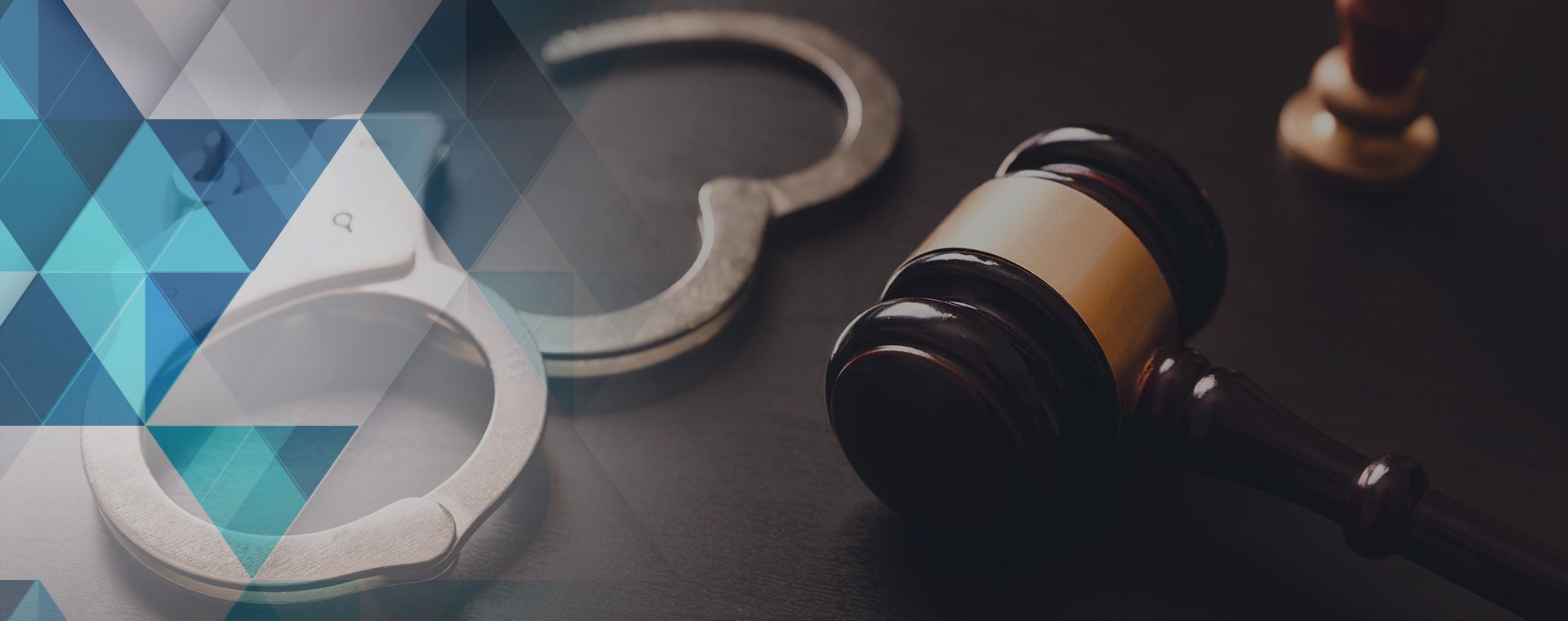
Orange County Domestic Violence Attorney
Representing Those Accused of Domestic Violence in Irvine, Santa Ana, & Tustin
When a crime of violence is committed against a current or former spouse, current or former fiancé or fiancée, someone with whom the defendant currently has or previously had a dating relationship, or the other parent of the defendant's child, it can be charged with domestic violence. These charges are severe and can result in lengthy prison sentences, huge fines, and the inability to have a family relationships.
The Orange County domestic violence lawyer at the Law Offices of Christian Kim can help. Being charged with domestic violence can be one of the most stressful and demanding times in a person's life. Representation by an experienced criminal defense attorney is imperative if the best possible outcome is to be achieved. If you have been charged with domestic violence, ensure all your rights are protected.
Have you been charged with domestic violence in California? Call the Law Offices of Christian Kim today at (714) 576-2935 or contact us online to discuss your case with our domestic violence lawyer in Orange County!

The Two Most Common Domestic Violence Crimes
The two most common domestic violence crimes are battery and infliction of corporal injury. The battery is a misdemeanor punishable by a maximum of a year in county jail. However, suppose the victim sustains an injury caused by the use of physical force by the defendant. In that case, the assailant can be charged with a misdemeanor punishable by a maximum of a year in jail or a felony punishable by two, three, or four years in California state prison.
The prison sentence may increase depending on certain factors, including:
- Prior criminal history
- Use of a weapon
- The extent of the injury sustained by the victim
- If the Victim was Killed
Although it is much more common for men to be charged with domestic violence, women also get charged with domestic violence. Some crimes may not involve the actual use of physical force, such as criminal threats or stalking. These crimes are also considered domestic violence crimes if committed against one of the persons mentioned above.
Facing Domestic Violence Charges?
Contact us today at (714) 576-2935 for legal representation. Protect your rights with our experienced Orange County domestic violence attorneys.
Penalties for Domestic Violence in California
If a person is convicted of domestic violence in Orange County, California, and placed on probation, they must complete a one-year Batterer's Treatment Program. There are also mandatory fees and fines, which are unique to domestic violence cases. Another sanction imposed on a domestic violence case is the issuance of a protective order which requires the defendant to have no contact with the victim. This order is usually issued while the case is pending, even before a conviction exists. For example, suppose a husband is charged with a domestic violence crime against his wife. In that case, either the husband or the wife (usually the husband) must move out of their shared residence and find somewhere else to live while the protective order is in place.
Usually, the protective order is in place for three years, and the only way to get it modified before it expires is for the victim to go to court and ask the judge to change the order. In most cases, the judge will require certain conditions to be met before he grants the request, such as the proof of enrollment by the defendant in the Batterer's Treatment Program and the completion by the victim of Personal Empowerment classes.
Protecting Your Rights in Domestic Violence Cases
When facing domestic violence charges, it is crucial to have a skilled and experienced attorney on your side to protect your rights and provide a strong defense. At Law Offices of Christian Kim, our team of legal professionals is dedicated to advocating for individuals accused of domestic violence throughout Orange County.
Our Orange County Domestic Violence Lawyer can help you navigate the complexities of the legal system and work towards achieving the best possible outcome for your case. We understand the serious implications of domestic violence charges and will fight tirelessly to defend your innocence.
Whether you are facing false accusations or need guidance on how to proceed with your case, our team is here to provide the support and representation you need. Contact us today to schedule a consultation and learn more about how we can help protect your rights in domestic violence cases.
Defending Against Domestic Violence Charges
Facing domestic violence charges can be overwhelming, but there are various defenses that can be used to challenge the accusations. Here are some common defenses in these cases:
- False Allegations: Sometimes accusations are made out of revenge, a misunderstanding, or even manipulation. In such cases, the defendant may argue that the charges are not based on reality. This defense often involves showing inconsistencies in the victim’s story or presenting evidence that contradicts the claim.
- Self-Defense: In some instances, the defendant may claim that their actions were a result of defending themselves from immediate harm. If the victim was the aggressor and the defendant only used necessary force to protect themselves, it could be a valid defense. The law allows individuals to protect themselves from harm, and this defense can be used if there is sufficient evidence to support it.
- Lack of Evidence: Domestic violence cases often rely heavily on physical evidence, such as injuries or eyewitness testimony. If there is no physical evidence or credible witnesses to support the victim's claims, it may be difficult for the prosecution to prove the case. In such situations, the defense can argue that there is not enough evidence to convict.
- Mutual Combat: If both parties were engaged in the altercation, and the defendant was simply acting in self-defense or in retaliation, the defense can argue mutual combat. This means both individuals were involved in the fight, and the defendant’s actions were not one-sided but rather part of the conflict.
Impact of Domestic Violence Charges on Family Law Matters
Domestic violence charges can significantly affect family law matters, especially when children or custody are involved:
- Custody Issues: A conviction for domestic violence can impact a person’s ability to maintain custody or visitation rights. Courts may view the defendant as a danger to the child’s well-being, which could lead to a loss of custody or supervised visitation.
- Protective Orders: In many domestic violence cases, a protective order is issued, which can limit the defendant’s contact with the victim. This could mean no communication with the victim or children and could even force the defendant to leave their home. Violating the protective order can result in serious consequences.
- Parental Rights: A domestic violence conviction can lead to the loss of parental rights. Courts may deem the defendant unfit to care for their children, potentially revoking visitation or custody rights.
Mandatory Counseling and Treatment Programs
In some cases, defendants convicted of domestic violence may be required to attend counseling or treatment programs:
- Batterer's Treatment Programs: These programs are designed to help individuals who have committed acts of domestic violence to understand their behavior and learn how to manage their emotions. These programs can last from several months to a year and may be mandated as part of probation. Successfully completing a program may lead to more favorable outcomes, such as reduced sentences.
- Domestic Violence Education: Participating in educational programs can sometimes help reduce the severity of the charges. These programs educate individuals on the impact of domestic violence, anger management, and healthy relationship behaviors. In some cases, successful completion of a program can lead to a more lenient sentence or even probation instead of jail time.
Understanding these defenses and potential outcomes is crucial for anyone facing domestic violence charges. An experienced attorney can help navigate these complexities and work toward the best possible result.
Frequently Asked Questions (FAQ) About Domestic Violence Charges
- Can domestic violence charges be dropped?
In some cases, the alleged victim may wish to drop the charges, but domestic violence cases are typically prosecuted by the state. Even if the victim no longer wants to pursue the case, the prosecutor can still move forward with the charges, especially if there is evidence of harm or a danger to others. - How does a domestic violence charge affect my job?
A domestic violence charge can have serious consequences on your employment. Many employers conduct background checks, and a conviction may lead to job loss or difficulty securing future employment, particularly in jobs involving children, healthcare, or other vulnerable populations. - What is the difference between a misdemeanor and felony domestic violence charge?
A misdemeanor charge is typically for less severe cases of domestic violence, often involving no serious injury or minimal harm. A felony charge can apply in more serious cases, such as when the victim sustains significant injury, or if there is a history of repeated offenses. Felony convictions carry much harsher penalties, including longer prison sentences. - Can I still see my children if I’m charged with domestic violence?
If you are charged with domestic violence, it may affect your custody and visitation rights. The court will evaluate the nature of the charges and may restrict or modify your access to your children to ensure their safety. In some cases, supervised visitation may be required. - Will I need to take anger management classes if I am convicted?
Yes, a court may order you to take anger management or batterer’s treatment programs as part of your sentencing. These programs are designed to help individuals manage their anger and behavior, and completion of these programs may positively affect your sentence or probation terms. - Can I be convicted of domestic violence if there is no physical evidence?
Yes, a conviction can still occur without physical evidence. In cases where there are no physical injuries, the prosecution may rely on witness testimony, the victim’s statement, or other evidence such as audio or video recordings. However, the lack of physical evidence can make it more challenging for the prosecution to prove the case beyond a reasonable doubt. - How long does a domestic violence case take to resolve?
The length of a domestic violence case depends on various factors, including the complexity of the case, whether it goes to trial, and whether a plea deal is offered. Some cases may take several months, while others may last longer if there are delays in investigations or court proceedings.
Get Help from Our Orange County Domestic Violence Attorney
In many domestic violence cases, the victim is unwilling to cooperate with the case's prosecution. It is common for the victim to tell the police or the prosecutor they would like to drop the charges. Unfortunately, doing so is almost impossible. Many domestic violence cases are prosecuted without the cooperation of the victim. Even if the victim refuses to testify at trial, the prosecution can prove its case without the victim's testimony. Contact our domestic violence attorney in Orange County today!
Need Legal Help with Domestic Violence Charges?
Call us now at (714) 576-2935 or contact us online to schedule a consultation with our trusted defense team.

Qualities of a Top-Tier Attorney
When it Comes to Your Attorney, Experience Matters-
Commitment
Attorney Christian Kim is committed to using his extensive experience as a former prosecutor and as a Santa Ana criminal defense attorney to aggressively and competently defend the rights of those accused of wrongdoing.
-
Integrity
Mr. Kim believes that anything less than complete honesty is a disservice to his clients. You deserve complete and frank communication from your attorney in order to make informed decisions in your case.
-
Professionalism
Maintaining the highest level of professionalism with all of his clients is a priority for Mr. Kim. Each client is treated respectfully and courteously and all phone calls are returned promptly.
-
Experience
After more than 7 years serving the Orange County area as a prosecutor and now over 14 years as a criminal defense attorney, Christian Kim has experience on both sides. His unique history gives him the one-of-a-kind perspective that your case needs.


Christian was extremely helpful through every process of my case. He was able to get my case dismissed entirely.

Get Started Today
Request Your Free Defense Consultation